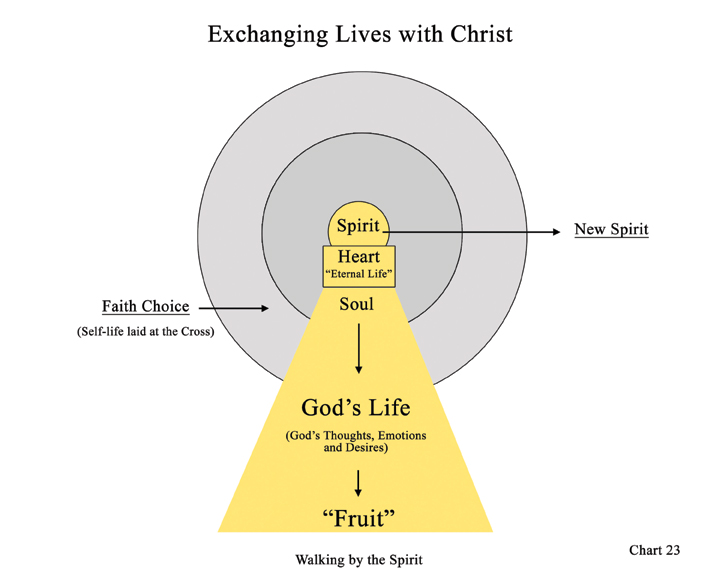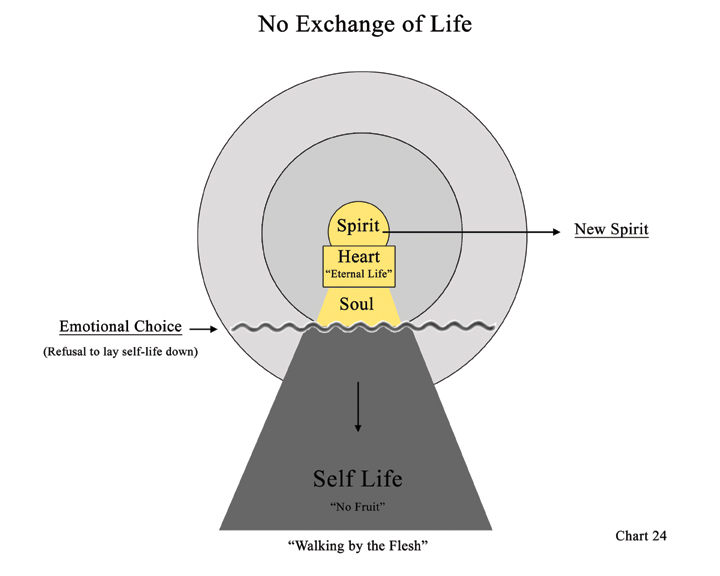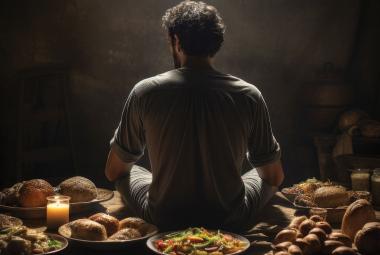I want to thank Pastor Tim Tyler for stepping in for me the last few months with his wonderful articles about the coming Kingdom.
I appreciate the freedom it has given me to prepare for and deliver six conferences in New Zealand and move from our big home here in Coeur d’Alene (where we have lived for 20 years) to a smaller, but wonderful, home just a few blocks away. It’s amazing, however, what you collect when you have “room” to store things (in the old property, we had two huge barns). Just imagine 50 years of not only your own “collectibles” and ministry-related relics, but also various “treasures” of four grown children and two deceased grandparents. So, Tim, thank you!
When we first began our series on The Kingdom, Power and Glory, we explored why we are here and what is God’s purpose for calling us? Then, we focused on describing the coming kingdom and all the events that will occur in that kingdom. Now, I’d like to turn our attention to what we have to do here in order to prepare for that coming kingdom. It’s essential that we understand the practical application, first of all, of becoming sanctified, then, of becoming a partaker of Christ, and finally, of becoming an overcomer.
It’s great to learn new exciting things such as prophecy and future events, but the most important part of all is how do these things change our lives? How do they conform us more into the image of Christ? And how do they help produce more godly fruit in our lives? What good is learning new Biblical revelation if it doesn’t somehow make us more like Jesus? So, let’s start with the basics.
What Is a “Partaker”?
What we are trying to do with these articles is integrate the sanctification process here on earth with the reward of inheritance in the Millennial Kingdom. Colossians 1:10–13 connects this for us:
That ye might walk worthy of the Lord unto all pleasing, being fruitful in every good work, and increasing in the knowledge of God; strengthened with all might, according to His glorious power, unto all patience and longsuffering with joyfulness; Giving thanks unto the Father, which hath made us meet [qualified] to be partakers of the inheritance of the saints in light: Who hath delivered us from the power of darkness, and hath translated us into the kingdom of His dear Son.
Here Paul connects the importance of “walking worthily” with the Lord and “being qualified” with becoming a partaker of the inheritance of Christ in the future Millennial Kingdom.
What exactly is a partaker? The word partake (Strong’s #2844, koinonos and #3353, metochos) means “to be a participant of something, a sharer in something, or a carrier of something.” All believers are partakers of Christ’s divine nature:
According to His divine power hath given unto us all things that pertain unto life and godliness, through the knowledge of Him that hath called us to glory and virtue: Whereby are given unto us exceeding great and precious promises; that by these ye might be partakers of the divine nature.
2 Peter 1:3,4
Partaking of Christ’s Life means not only receiving His Life in our hearts when we are born again, but also living that Life out in our souls. Partaking of His Life is what empowers us to become overcomers—the faithful ones who produce “fruit.” It means that the Life of Christ is now being lived out through us. His Life has filled us and the Holy Spirit is now empowering us.
Being a partaker in Christ, however, is not the same thing as being a partaker of Christ. The former is “positional” whereas the latter is “experiential.” We are placed in Christ when we are first born again as a free gift (justification), but we become partakers of Christ when His Life begins to come forth through us (sanctification). In other words, we continually lay our self-life down at the Cross saying, “Not my will, but Thine” and thus, His Life is able to come forth through us.
Partaking of His Life results in becoming the overcomers that Revelation refers to as ruling and reigning in the Millennium. They are living Christ’s overcoming Life—His Agape Love, His supernatural power, and His divine wisdom. These overcomers are simply partaking of His Life. They are loving with His Love, depending upon His strength, and making decisions through His wisdom. These are the ones who will be Christ’s co-heirs in His future kingdom.
God’s plan is not simply to repair us, but to totally recreate us. He wants our old nature to be replaced by His new nature in us. This is what the sanctification process is all about—creating the image of Christ in us—for the purpose of bringing glory to Him (Romans 8:29).
The Exchanged Life
Partaking of Christ’s Life means that our self-life (our own natural self-centered thoughts and emotions) has been set aside and God’s Life freed to come forth. Matthew tells us that if we want to save our lives, we must first lose them. And only when we lose them, will we then find them (16:24–26). We must constantly go to the Cross with our self-life—and leave it there—so that Christ’s Life can come forth.
When our self-life is replaced with Christ’s Life, it is called “the exchanged life,” “the shared life,” or “the imparted life.” We exchange our love for His Love (Ephesians 3:19), our wisdom for His wisdom, our strength for His (Romans 3:22; Galatians 2:16), and so forth. It’s Christ’s eternal Life, but because we are open and cleansed vessels, we can now partake of it, share it, and live it.
This is the oneness and the union of spirits that we read about in Galatians 2:20:
I am crucified with Christ; nevertheless I live; yet not I, but Christ liveth in me; and the life which I now live in the flesh I live by the faith of the Son of God, who loved me and gave Himself for me.
 This is the exchanged Life. This exchange of life, however, does not happen automatically. In order to live Christ’s Life, we must not only be cleansed vessels (sanctified), we must also have childlike faith. By faith, we choose to give God our hurts, our bitterness, our insecurities, our unforgiveness (any self-life that has quenched His Spirit in us) and in exchange, He gives us His Life—His power and His Love. John 12:24–25 also describes this exchange of life perfectly:
This is the exchanged Life. This exchange of life, however, does not happen automatically. In order to live Christ’s Life, we must not only be cleansed vessels (sanctified), we must also have childlike faith. By faith, we choose to give God our hurts, our bitterness, our insecurities, our unforgiveness (any self-life that has quenched His Spirit in us) and in exchange, He gives us His Life—His power and His Love. John 12:24–25 also describes this exchange of life perfectly:
Verily, verily, I say unto you, except a corn of wheat fall into the ground and die it abideth alone; but if it die, it bringeth forth much fruit. He that loveth [holds on to] his life shall lose it; and he that hateth [lets go of] his life in this world shall keep it unto life eternal.
CHART 23 on page 36 is a picture of what “ex-changing lives with Christ” might look like. The grey circles represent our body (the outer circle) and our soul (the middle grey circle). The yellow small circle in the center represents the new Spirit God gives us when we are born again. When we make “faith choices” to do His will regardless of how we feel or what we think, His Life (the yellow beam of Light) comes forth through our soul and body reflecting His Life to all we come in contact, bearing godly “fruit.” This is what it means to “walk by the Spirit.”
If, however, we quench God’s Spirit in our hearts (the black squiggly line, page 37) by making “emotional choices” to follow our own hurts, fears, resentment and unbelief, our own “self-life” will be shown forth in our souls, not God’s Life at all. And, consequently, no “fruit” will be produced.
 CHART 24 on page 37 is what this might look like. This is what “walking by the flesh” looks like. And, if we keep quenching God’s Spirit over a period of time, we will run the risk of becoming those unfaithful, backsliding, nominal Christians who ultimately will miss the inheritance that God has planned for us in the future. Scripture says we can even go so far as to “sear our conscience”—where we don’t even recognize right from wrong anymore, holiness from ungodliness, and kindness from hardness (1 Timothy 4:2).
CHART 24 on page 37 is what this might look like. This is what “walking by the flesh” looks like. And, if we keep quenching God’s Spirit over a period of time, we will run the risk of becoming those unfaithful, backsliding, nominal Christians who ultimately will miss the inheritance that God has planned for us in the future. Scripture says we can even go so far as to “sear our conscience”—where we don’t even recognize right from wrong anymore, holiness from ungodliness, and kindness from hardness (1 Timothy 4:2).
The substitutionary death of Christ on the Cross solved the problem of sin for us, but only the moment-by-moment surrender of our self-life will empower us to become cleansed vessels who produce “fruit.” Consequently we must not only receive Christ’s Life at our new birth, we must also be partakers, vessels, and carriers of His Life to others by the power of the Holy Spirit.
Many Christians believe that Christ is the Lifegiver, but they forget that He must also be their “Life itself.” In other words, they must not only be recipients of His Life in their spirits, they must also be partakers of His Life in their souls by the power of the Holy Spirit. Scripture tells us that if we live by the Spirit, we must also walk by the Spirit.
The Purpose of Being a Partaker: “Fruit”
The purpose of being a partaker of Christ’s Life is that we might become those overcomers that Revelation 2 and 3 refer to, who produce the “fruit of righteousness” in their lives (Philippians 1:10–11). The Greek word for fruit is karpos (Strong’s #2590), which means “that which is produced by the Spirit of God in us.” Godly “fruit” comes from sanctification, through deliverance from a life of sin and self, and the subsequent filling and empowering of the Holy Spirit. The Pulpit Commentary makes an interesting remark here. It says: “Our work is our fruit; and our fruit is the product of our lives.” (We’ll speak more about the difference between “Works of the Spirit” and “Works of the Flesh” in future articles.)
But, from now on when we mention fruit, you’ll know that we are referring to the “good works”—the righteous deeds and the godly actions—that are done by the Spirit of God through us (Ephesians 5:9; Philippians 1:11). Without a continual “co-death” with Christ (the crucifixion of self), however, there will be no exchange of Life, and thus, no fruit.
You shall know them by their fruits… every good tree bringeth forth good fruit, but a corrupt tree bringeth forth bad fruit. A good tree cannot bring forth bad fruit, neither can a corrupt tree bring forth good fruit.
Matthew 7:16–18
In other words, fruit is the visible expression of the power of God working in us. However,
Every branch in Me that beareth not fruit He taketh away: and every branch that beareth fruit, He purgeth it, that it may bring forth more fruit… Abide in Me, and I in you. As the branch cannot bear fruit of itself, except it abide in Me, and I in him, the same bringeth forth much fruit: for without Me ye can do nothing.
John 15:2–5
To be continued next month: “The Fruit of the Spirit.” This article has been excerpted, in part, from Chuck and Nan’s book The Kingdom, Power and Glory.




